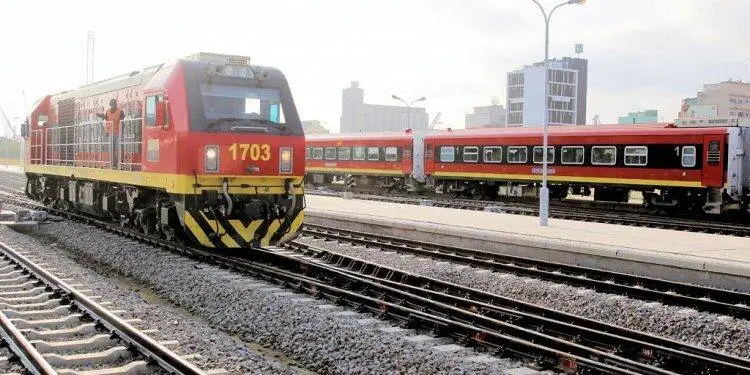The business sector in Bié province is optimistic about investments along the Lobito Corridor, particularly in the Benguela Railway (CFB).
These developments are expected to enhance agricultural production and facilitate the transport of goods to Zambia and the Democratic Republic of Congo (DRC).
Farmer Manuel Maia, who operates several agricultural projects in Cunhinga, believes the Lobito Corridor will significantly boost his investments and strengthen local agriculture.
He plans to leverage this route to expand his business operations from Bié. Maia’s Fazenda will improve product flow to coastal and eastern regions of the country.
He emphasized the need for effective utilization of the Lobito Corridor to promote agricultural activity and generate revenue for the state.
Maia, a Portuguese national residing in Bié, is currently intensifying grain production across 600 hectares in Cambândua and Cunhinga.
His Xaparro farm employs 34 workers in maintenance, cafeteria support, and production techniques, with an initial investment of 5 billion kwanzas.
Maia highlighted that the Lobito Corridor has positively influenced agricultural production at Fazenda Xaparro, with 250 hectares dedicated to wheat and 140 hectares to rice, aiming to harvest over 400 tons of rice this agricultural year.
In Cunhinga, Fazenda Xaparro plans to produce 1,200 tons of rice and 600 tons of corn this season, capitalizing on the advantages provided by the Benguela Railway.
Regarding American investment, Maia stressed the importance of maximizing returns, as no investment occurs without profit.
He noted that the Lobito Corridor, extending to Zambia and Congo, presents significant income opportunities, urging Angola to optimize its natural resources for the benefit of families and the state.
Maia also called on the Angolan government to conduct research to identify available land for private investment.
He pointed out that cultural factors, where traditional authorities influence land sales, complicate the legalization of land titles. A cartographic assessment of free areas could facilitate investment along the Lobito Corridor.
Value Chain Development
Adilson Watunga, a fish farming entrepreneur in Bié, affirmed that the Lobito Corridor will strengthen trade with neighboring countries and enhance access to animal feed, thus increasing product exports.
His fish production project, Thipitolândia, located in Cuito, aims for a monthly output of 100 tons but faces challenges due to funding and feed shortages.
Thipitolândia supplies fish to buyers in Luanda and surrounding areas, supported by professionals from China and Vietnam.
The concession of land in strategically located municipalities with accessible water resources in Bié has hindered foreign investment, limiting opportunities for new agricultural ventures in the region.
Strategic Recommendations
Economist Xinate Baptista urged stakeholders to capitalize on the fertile lands in Central Angola to benefit families and increase state revenue through the Lobito Corridor.
He pointed out that American investment in the CFB is particularly advantageous for promoting trade in raw materials and finished products, given Bié’s central location.
Baptista emphasized that American investment in the Lobito Corridor represents a significant opportunity to build human, financial, and industrial capital, fostering the development of micro and small enterprises.
He advocated for the establishment of local industries to produce essential inputs, enhancing the financial viability of foreign investments tied to the Benguela Railway.
![]()




